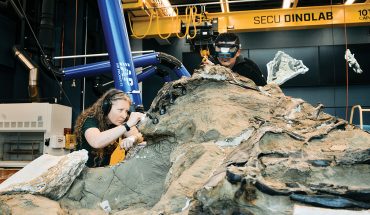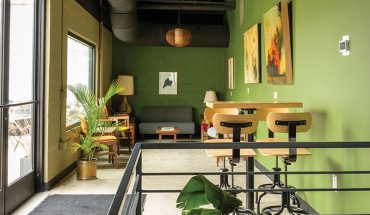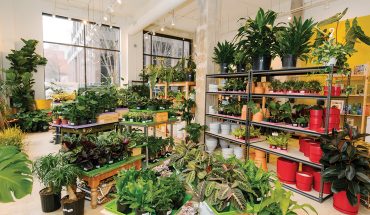by Emma Powell
Wood bowl artist Darrell Rhudy, 83, first discovered his love of woodcraft in the third grade.
“I told my teacher I wanted to build birdhouses,” he says, standing in the workshop he built behind his house off Ebenezer Church Road. Around him are his handmade tools, a pile of wood shavings, and 10 unfinished birdhouses.
Along with birdhouses, Rhudy creates bowls, vases and urns. A retired pharmacist, Rhudy describes himself as a woodturner. Instead of carving, he uses a lathe to hollow out stumps and logs, and shapes them into refined pieces he sells at the Midtown Raleigh Farmer’s Market.
He began perfecting his technique of turning wood 25 years ago after attending a workshop at the John C. Campbell Folk School in Brasstown, N.C. He became serious about it right away, taking trees like pine, dogwood, cherry, pecan – and his favorite, maple – and turning them into salad bowls, lamp bases, and other objects. The biggest seller today at his market stand, Buck Creek Bowls, is large bowls.
In the early years of his craft, Rhudy would spot a dying tree and offer to chop it down in return for the wood. Now, tree cutting services come to him with local wood.
To start, Rhudy takes a hunk the size of a five-gallon bucket and uses a chainsaw to give the wood some shape. Then it goes through a series of spins on the lathe, a four- to five-day stint in Rhudy’s home kiln, some sanding, and multiple coatings of lacquer. Afterwards, Rhudy fills every dent and ding with black dust and superglue, which makes for distinctive designs.
If the wood he wants to work with doesn’t have the color he desires to begin with, Rhudy leaves it in his yard surrounded by leaves. The moisture causes fungus to spalt the wood, creating organic, unusual patterns.
“Nature does all my painting.”




